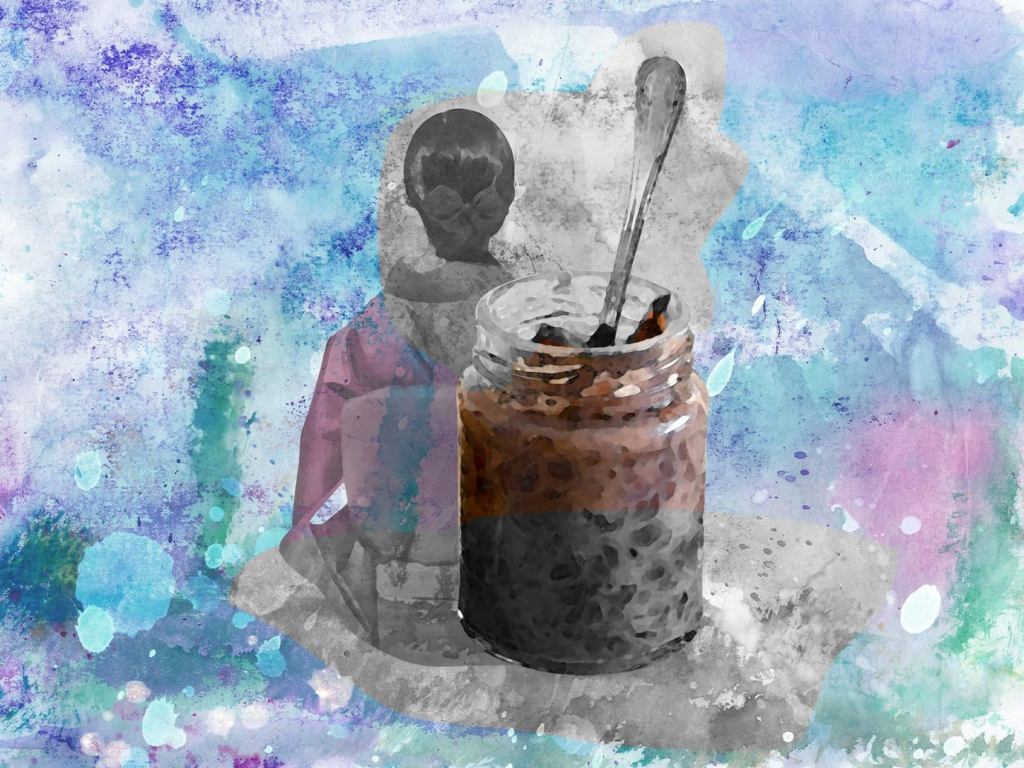Tokyo Weekender’s series TW Creatives feature various works by Japan-based writers, photographers, videographers, illustrators and other creatives in a bid to provide one additional platform for them to exhibit their talent. The works submitted here belong entirely to the creators — Tokyo Weekender only takes pride in being one of their most passionate supporters!
For our latest entry, we present a short fiction work of author Amanda Huggins.
The Last Of Michiko
Hitoshi knelt on a blue cushion in the doorway leading out to the garden. Every evening he opened the outer doors and the sliding screens regardless of the season, and waited for Michiko until long after the sun had disappeared behind the trees. His heart knew that she would never return, but his head was stubborn.
The windchimes jingled in the sudden breeze, mimicking Michiko’s laugh, and Hitoshi pressed his face into her pink kimono, inhaling the amber scent. At his side stood a jar of her homemade adzuki jam, as sweet and red as her lips. He had rationed it carefully, but the jar was almost empty.
The day’s post was propped up against the screen, and Hitoshi reached for the bills and the letter from his daughter. She wrote each week and always asked him to stay with her for a while. Sometimes he thought he would go, but the trip to Tokyo seemed like such a long journey from Kyoto now, and the city blinded him. There were no distances; everything was too densely packed, too close to see. And what about Michiko? He couldn’t risk her returning to the empty house in his absence.
His son, Shoichi, lived nearer, but when Hitoshi saw the car pull up he stayed out of sight and didn’t answer the door. He couldn’t face the words that needed to be said, and he couldn’t bear to be reminded of the dark water snatching Michiko away as though she were a brittle twig. When Hitoshi thought of that day he pictured her hair floating upwards like the darkest seaweed, her skin as cold and blue as the sea, and though he knew he should talk to his son, he couldn’t face hearing Shoichi say that he was sure his mother had drowned, that she would not come back.
Some evenings Hitoshi thought he heard a faint knocking at the door, but when he went outside, the narrow street was always empty. He stayed there awhile, peering into the darkness, his mind tricking him into hearing Michiko’s wooden clogs on the cobbles. In the distance he glimpsed the soft light of the lantern outside the izakaya. He imagined the warmth inside, the kind face of Kyoko as she poured the sake, and his friend, Wada, sat at the counter waiting to mull over the latest baseball game. But Hitoshi always went back into the house and sat alone again in the dark.
Tonight, he didn’t hear any knocking, but just after seven o’clock the doorbell rang. When he opened the screen he saw his neighbour, the young widow, Chiyoko, stood beneath the light cradling a jar in both hands.
‘I found this in the cupboard, Hitoshi-san. It’s the last of Michiko’s sweet bean jam.’
As he took the jar, Hitoshi stumbled under the weight of its significance. He looked up at Chiyoko as she discreetly backed away, and when their eyes met she paused. He bowed, and gestured her inside, apologising for his rudeness. She slipped off her shoes and stepped past him, her kimono sweeping the tatami like a new broom. As the door closed, Hitoshi noticed that Michiko’s wind chimes had fallen silent.
****
As the weeks went by Hitoshi found himself looking forward to Chiyoko’s visits more and more. He was calmed by her gentle movements as she prepared tea or served warmed sake on his favourite lacquer tray. Her conversation was undemanding, and her voice soothed him as she chatted about the neighbourhood and her office job in town. They rarely mentioned Michiko, but she often pressed him to talk about his children, persuading him to ask them both over for a family weekend.
Chiyoko was quite similar to his wife in appearance, and at first Hitoshi had found himself continually staring at her, searching her face for everything he had lost. Chiyoko always changed out of her work suit before she visited, and the soft colours and patterns of her kimonos were a further reminder of his wife. Occasionally, when he’d caught a glimpse of her heavy silk sleeve around the edge of the door, he had been certain for a moment that Michiko would walk into the room.
While Chiyoko talked to him he always sat facing the garden, and when she went home he moved over to his cushion in the doorway and opened the screens wider to let the warm evening air into the house. It was only then that he could hear the wind chimes. The final jar of bean paste was always beside him, and each evening he tasted Michiko’s lips on his own as he ate a single spoonful.
One evening Chiyoko noticed the jar on the floor and commented that there was only a teaspoon left. Hitoshi’s reply was terse; he was only too aware of the significance of that one last mouthful of sweetness. Even the scent of Michiko’s kimono was growing fainter, as though he had inhaled and absorbed every last thread and breath of her. When Chiyoko left, Hitoshi wept for the first time in months. The sound of his sobbing carried across the garden, and a dog howled in reply from the valley beyond.
****
The following evening, Chiyoko called at the usual time, holding up a jar of bean jam at the window. She claimed she found it tucked away at the back of another cupboard. Hitoshi took it from her, holding it up to the light. The screw top was green, and Hitoshi recognised it as a type of pickle jar, a brand that he and Michiko had never eaten. And the paste was too dark. He knew it was not Michiko’s; he knew it was a deception. But he understood it was meant as a kind one.
After Chiyoko had gone home he sat in the doorway watching the fireflies for a while, then fetched a pen and paper and wrote a short note asking her to lunch at the weekend to meet his son and daughter.
When he dropped it through her door he glanced along the street towards the izakaya, wondering if Wada would be there at his usual place at the counter. Chiyoko had told him that Wada and Kyoko were finally a couple after all their years of shy flirtation, and the thought of them together made him smile. The red lantern swayed in the soft evening breeze as though beckoning him. Hitoshi counted the loose change in his pocket to make sure he had enough money for a couple of beers, and then he headed down the street.
Author’s Profile

Want to be featured next? Reach out to us at [email protected]

Updated On December 28, 2022








